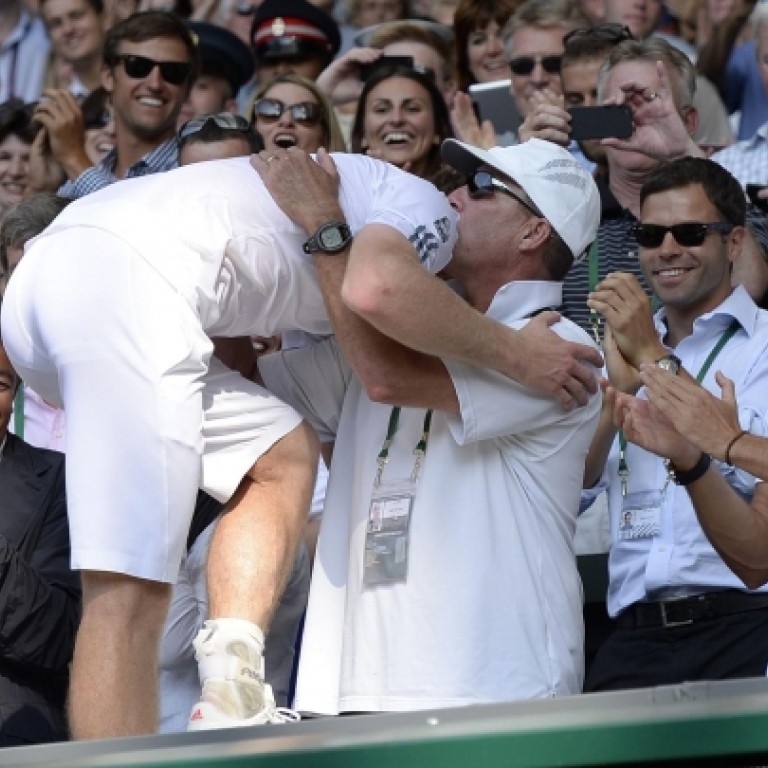
Murray hails coach Lendl who made him a champion
Ivan Lendl drew on his own past failures to help Murray make the leap from perennial runner-up to the pantheon of the greats
When Andy Murray lost his first three grand slam finals without winning a set, it seemed he was destined to join a long line of "Brave Brits" whose career would be defined by near misses.
Many predicted that when he finally hung up his racquet, he would simply tag on the end of the queue which was already heaving with such tennis luminaries as Bunny Austin, Roger Taylor, John Lloyd, Greg Rusedski and Tim Henman. Fred Perry's standing as the last British player to win a grand slam title, in 1936, looked like it would stretch on to another generation.
But just when British fans were starting to despair, Murray decided to seek out a new coach and dialled the number of a tennis great who had barely been seen around a court in 18 years. The fact that that man happened to be Ivan Lendl - a player whose love-hate relationship with Wimbledon went to extremes - certainly raised eyebrows.
What had initially seemed like a crazy idea has turned out to be a masterstroke because over the course of 18 months, the Czech-turned-American plotted Murray's path to glory in arguably the greatest ever era for men's tennis.
First came the Olympic gold amid joyful scenes at the All England Club last August, then the US Open at Flushing Meadows and finally on Sunday Murray got his hands on the ultimate prize in tennis - the Wimbledon men's trophy.
"He believed in me when a lot of people didn't," said Murray, whose calm demeanour on Sunday was in stark contrast to 12 months ago when he ended up being a tearful wreck after finishing runner-up to Roger Federer. "He stuck by me through obviously some tough losses the last couple of years. He's been very patient with me. I'm just happy I managed to do it for him. He would have loved to have won here, but I think this was the next best thing for him."
He'd have loved to have won here, but I think this was the next best thing for him
When Murray lost to Federer in the final last July, his career path seemed to be mirroring Lendl's who also lost his first four major finals. Lendl famously boycotted Wimbledon in 1982 after declaring "grass is for cows" but a decade later winning Wimbledon became an all-encompassing, yet ultimately futile, obsession for him. The lessons Lendl learnt from his own failures, however, fuelled his desire to help Murray succeed and end Britain's marathon wait for a men's champion at Wimbledon.
"He's made me learn more from the losses that I've had than maybe I did in the past," explained the 26-year-old following his win over Novak Djokovic.
"He's always told me exactly what he thought. And in tennis, that's not always that easy to do in a player/coach relationship. The player is sometimes the one in charge. But he's been extremely honest with me. If I work hard, he's happy. If I don't, he's disappointed and he'll tell me."
When Lendl came on board, it was not as if he had to tinker too much with Murray's arsenal. The weapons were all there and his fitness regime was already bordering on the extreme - with Murray famously training on Christmas Day in the Miami heat.
However, Lendl has left an indelible mark on Murray's on-court demeanour, which used to swing to extremes. Whereas Murray used to become "Mr Desperate" or "Mr Angry" when things were not going his way Lendl has taught him how to stay "Mr Cool" even when the going gets tough.
That approach means Murray has finally fulfilled the promise he showed when he won the boy's title at the US Open in 2004 as a 17-year-old tyro.
After single-handedly shouldering the hopes of 60 million Britons for almost a decade, Murray now hopes it will not take another lifetime for Britain to find a worthy Wimbledon successor. "With the amount of money that's invested in the sport in this country, then it shouldn't take another 70 odd years. I would hope that it wouldn't be that long again," he added before heading off to the Wimbledon champions' ball.

